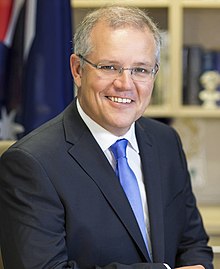By Ben Kerrigan
Australian Prime Minister Scott Morrison has announced a three-step plan to reopen his country’s economy by July, in a bid to return the economy to normal
Like the Uk, Australia banned public gatherings and non-essential travel in late March. Local transmission has since been curbed, however, with the outbreak now considered broadly under control.
“The next step beyond this will be to build confidence and momentum that will see our economy get back up and running and get Australians back up on their feet and moving ahead with confidence,” said Morrison. Morrison, highlighted the three stages the lockdown easing will take. First, he said he will allow greater connections between friends and family, allowing for more people to gather at home and visit each other. Morrison said that pupils will likely be able to return to school, while restaurants, retail stores and cafes can reopen. Thirty people will be allowed to attend funerals and ten will be able to attend weddings.
In Step two, larger gatherings of up to 20 people will be allowed in venues such as cinemas and galleries, while organised community sport events and beauty parlors will be allowed to reopen.
Finally, in the step three, gatherings of up to 100 people will be allowed and interstate travel will be permitted to resume.
Morrison said there would be no strict timeline for the measures, and states and territories will be allowed to enact them at their own pace, but that the goal would be to move through all of the steps to achieve a “Covid safe economy” by July of this year.
Australia’s Chief Medical Officer Brendan Murphy said: “Step one is tentative, baby steps into normalisation.”
If no major outbreaks are recorded states and territories will move to stage two where gyms, cinemas and galleries will be allowed to re-open, although businesses will only be able to have 20 customers at a time. States that have closed their borders would start to allow some interstate travel, Mr Morrison said.
Stage three will allow gatherings of up to 100 people, allow staff to return to their offices and see the re-opening of nightclubs. All interstate travel will be allowed, along with some limited international travel, including flights between Australia and New Zealand.
International students would also potentially be allowed to return to Australia, but would face two weeks in quarantine. While the lockdown restrictions have successfully kept a lid on the outbreak, they have had a devastating impact on the economy. Treasurer Josh Frydenberg estimated the measures are costing £2.1bn a week.
Australia’s central bank has predicted the country is facing its biggest economic contraction on record, despite pledges from it and the government of £168bn in support to cushion the economic blow.




